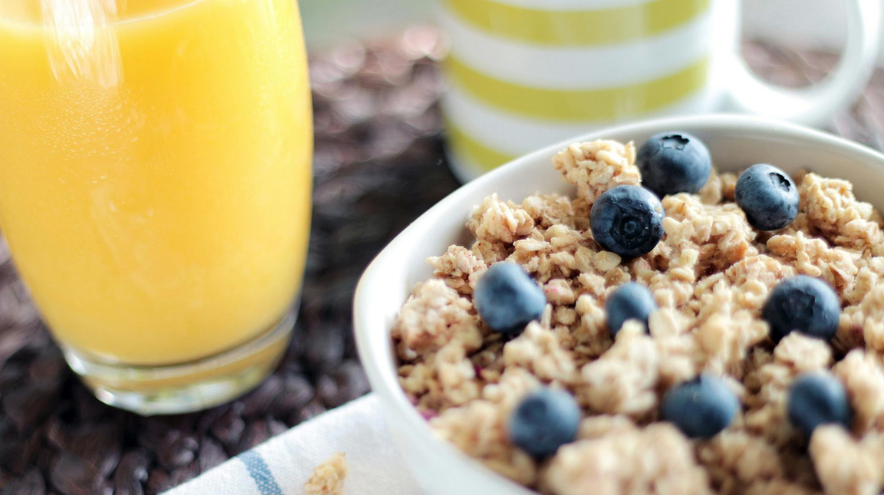The Power of Holistic Nutrition in Modern Wellness

In our fast-paced world, the power of holistic nutrition is gaining recognition as a cornerstone of modern wellness. At its core, holistic nutrition emphasizes the interconnectedness of mind, body, and spirit, advocating for a balanced diet that nourishes the whole self. By focusing on natural, unprocessed foods, it aims to support overall health rather than just treating symptoms.
“Holistic nutrition is not just about food; it’s about fostering a harmonious relationship with oneself.”
Incorporating holistic nutrition into daily life is crucial for achieving optimal wellness. It complements practices like yoga and meditation, which also emphasize mindfulness and balance. Together, they form a comprehensive approach to health that nurtures both mental and physical well-being.
Self-Care and Holistic Nutrition
Self-care is the practice of taking deliberate steps to nurture one’s mental, physical, and emotional well-being. It involves making choices that enhance health and reduce stress, ultimately leading to a more balanced and fulfilling life.
Holistic nutrition plays an integral role in self-care by providing the body with the nutrients it needs to function optimally. By emphasizing whole, natural foods, holistic nutrition helps to maintain energy levels, support immune function, and improve mood.
“Embracing holistic nutrition as part of your self-care routine can transform your overall well-being.”
Incorporating simple nutritional habits can significantly enhance self-care efforts. Start by incorporating a variety of colorful vegetables in your meals to ensure a wide range of nutrients. Opt for whole grains like quinoa or brown rice, which provide sustained energy. Additionally, staying hydrated by drinking plenty of water throughout the day is essential for maintaining physical and mental health.
By integrating these holistic nutrition practices into your daily routine, you can support your body’s needs and promote a healthier lifestyle.
Mindfulness and Nutrition
Mindfulness is the practice of being fully present and engaged in the current moment without judgment. It involves heightened awareness of thoughts, emotions, and physical sensations, allowing individuals to connect with their environment and themselves.
When applied to nutrition, mindfulness transforms eating habits by encouraging individuals to focus on the sensory experience of food. This includes savoring flavors, textures, and aromas, which fosters a deeper appreciation for meals and promotes healthier choices.
Mindful eating helps break the cycle of stress-related or emotional eating by cultivating awareness of hunger and satiety cues. This conscious approach can lead to significant benefits, including reduced binge eating and improved digestion. In fact, studies show that mindful eating can lead to a 34% reduction in food intake, aiding in weight management and overall wellness.
By integrating mindfulness into nutritional practices, individuals can enhance their relationship with food, leading to more balanced and fulfilling dietary habits that align with the principles of holistic nutrition.
Emotional Well-Being and Holistic Nutrition
The connection between diet and emotions is profound. What we eat directly impacts our brain chemistry, influencing mood and emotional stability. A balanced diet rich in nutrients can significantly enhance emotional well-being.
Incorporating specific foods known to boost mood can be transformative. Here’s a quick guide:
| Food | Benefit |
|---|---|
| Dark Chocolate | Increases serotonin and endorphin levels |
| Fatty Fish (e.g., salmon) | Rich in Omega-3 fatty acids, supports brain health |
| Bananas | Contains vitamin B6, aids in serotonin production |
| Nuts and Seeds | High in magnesium, reduces anxiety |
Consider the story of Sarah, a busy professional who struggled with mood swings. Upon adopting a holistic nutritional approach, she incorporated more Omega-3 rich foods and leafy greens into her diet. Within weeks, Sarah noticed a remarkable improvement in her emotional stability and overall happiness.
By understanding the impact of nutrition on emotional health, individuals can make informed dietary choices that not only nourish the body but also enhance emotional well-being.
Yoga and Holistic Nutrition

Nutrition plays a crucial role in enhancing the benefits of a yoga practice. It fuels the body, supports flexibility, and aids in recovery. A well-balanced diet complements yoga by providing the energy and nutrients necessary for optimal performance and mental clarity.
For yoga practitioners, certain foods are particularly beneficial. Leafy greens such as spinach and kale, rich in antioxidants and fiber, support detoxification. Whole grains like quinoa and brown rice provide sustained energy, while nuts and seeds offer essential fatty acids that promote joint health. Additionally, fruits like bananas and berries are excellent for quick energy and muscle recovery.
The synergy between yoga and nutrition lies in their mutual goal of promoting holistic well-being. Just as yoga seeks balance and harmony within the body, a mindful approach to nutrition ensures that what we consume aligns with our physical and mental needs. By integrating these practices, individuals can experience enhanced vitality, increased mindfulness, and a deeper connection to their bodies.
Meditation and Nutritional Balance
Meditation serves as a powerful tool in holistic health, promoting mental clarity, reducing stress, and enhancing emotional resilience. By calming the mind, it allows individuals to connect deeply with their inner selves, fostering a sense of peace and well-being. The benefits of meditation extend to various aspects of health, making it an integral component of a balanced lifestyle.
To optimize meditation sessions, certain nutritional practices can be adopted. Consuming a light, easily digestible meal before meditation can prevent discomfort and enhance focus. Foods like a small bowl of oatmeal, a banana, or a handful of almonds provide gentle energy without causing distraction.
Integrating nutrition and meditation involves mindful eating, where attention is paid to the body’s responses to different foods. This practice encourages selecting nutrient-dense foods that support mental clarity and emotional stability. By combining meditation with balanced nutrition, individuals can cultivate a harmonious relationship between their physical and mental health, paving the way for a more centered and fulfilling life.
FAQ on Holistic Nutrition
As holistic nutrition gains popularity, many people have questions about its principles and practices. Here are some common inquiries:
Q: What is holistic nutrition? A: Holistic nutrition is an approach that considers the whole person, including their physical, emotional, and spiritual well-being. It focuses on natural, nutrient-dense foods to promote overall health.
Q: Is holistic nutrition the same as a diet? A: No, holistic nutrition is not just a diet. It’s a lifestyle that incorporates mindful eating, balanced meals, and an understanding of how food affects all aspects of health.
Q: Can holistic nutrition cure illnesses? A: While holistic nutrition can support health and wellness, it is not a substitute for medical treatment. It can complement conventional medicine by enhancing the body’s natural healing processes.
Q: What are some misconceptions about holistic nutrition? A: A common misconception is that holistic nutrition is restrictive or expensive. In reality, it encourages flexibility and can be adapted to any budget by focusing on whole, unprocessed foods.
Q: How can beginners start with holistic nutrition? A: Start by incorporating more fruits, vegetables, whole grains, and lean proteins into your meals. Pay attention to how different foods make you feel, and gradually make changes that align with your health goals.
https://holisticwellnesswave.com/index.php/2025/08/21/preventing-cardiovascular-disease-essential-health-strategies/
https://www.ncbi.nlm.nih.gov/
Conclusion
Holistic nutrition plays a vital role in modern wellness, emphasizing the importance of nourishing the body, mind, and spirit. By integrating principles of self-care, mindfulness, and emotional well-being, individuals can experience profound health benefits. Practices like yoga and meditation are seamlessly woven into this approach, offering a balanced lifestyle that supports physical and mental health.
Embracing holistic nutrition encourages a deeper connection with food and its impact on overall well-being. As you explore this path, remember that even small changes can lead to significant improvements. Start by incorporating natural, nutrient-dense foods, and allow yourself to grow into a more mindful, healthier lifestyle. By doing so, you’ll unlock the transformative power of holistic nutrition and enhance your wellness journey.






